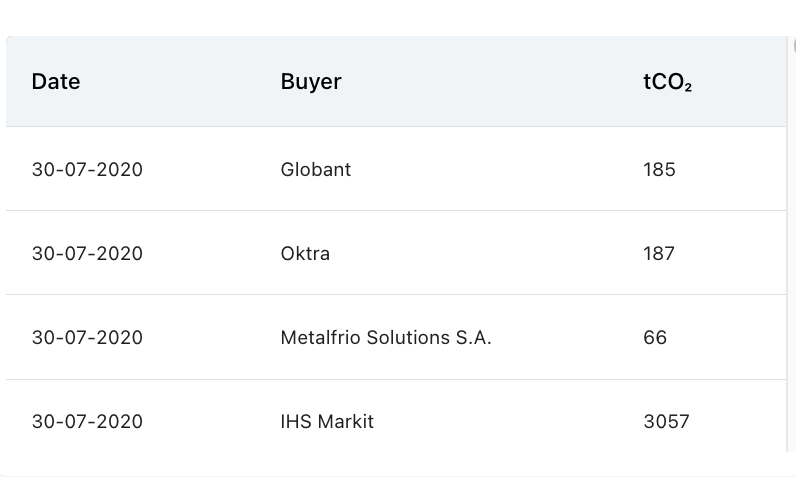Project Transactions API
Project Transactions Endpoint
The Project Transactions endpoint provides a comprehensive breakdown of financial activities associated with carbon offset projects. The returned data is formatted as an array of transaction objects, with each object encapsulating essential details. The "Type" attribute denotes that the record pertains to a carbon offset transaction. The "Date" attribute specifies the chronological occurrence of the transaction in the "DD-MM-YYYY" format. The "Buyer" attribute identifies the participating entity or organization involved in the transaction, offering insight into the diverse stakeholders supporting carbon offset initiatives. Lastly, the "Vintage" attribute signifies the specific vintage or edition of carbon credits associated with the transaction, aiding in tracking the unique characteristics of the carbon offset units exchanged. This structured data array allows seamless integration into applications, facilitating a transparent and detailed overview of the financial history of individual projects. Developers can leverage this information to enhance user experiences, enabling stakeholders to make informed decisions based on both environmental impact and financial performance.

You won't be able to fetch any data without an API key. Generate one here.
Make your request
const apiEndpoint = 'https://data.tryatmos.com/atmos/get_project_transaction_data/?project_id=VCS2338&sort_by=Transaction';
// Fetch request
fetch(apiEndpoint, {
method: 'GET', // or 'POST', 'PUT', etc.
const headers = {
"x-api-key": "<your api key>",
"Content-Type": "application/json",
};
// You can include a request body for methods like POST or PUT
// body: JSON.stringify({ key: 'value' }),
})
.then(response => {
if (!response.ok) {
throw new Error(`HTTP error! Status: ${response.status}`);
}
return response.json();
})
.then(data => {
// Handle the response data
console.log(data);
})
.catch(error => {
// Handle errors
console.error('Error:', error);
});